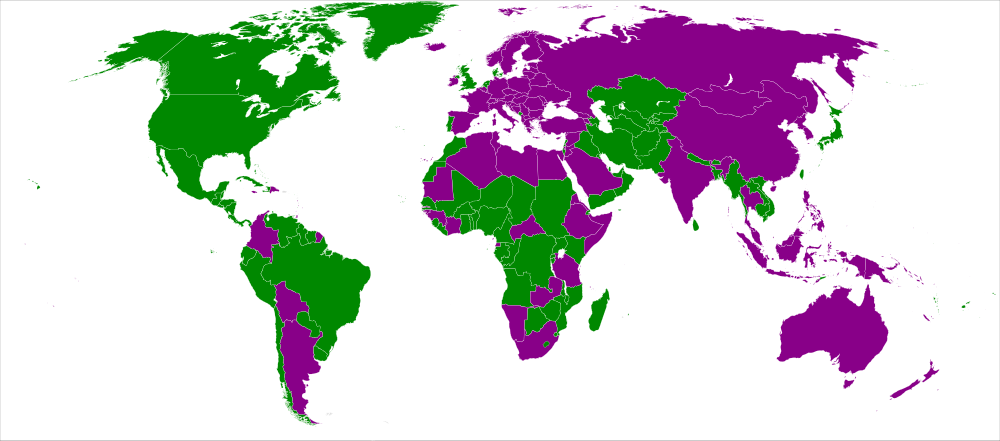The following article by Asya Pereltsvaig is from GeoCurrents (which “explores current events through a geographical lens. It is a geography blog dedicated to the peoples, places, and languages shaping the world“). It was posted on December 5, 2013 and titled “Islamic Fatwas, Grammatical Gender, and Translation—Or Beware of Those Sexualized Vegetables!”:
A recent report in India Today mentions a fatwa (Muslim religious decree) issued by a cleric associated with the Muslim Brotherhood to prohibit women from swimming in the sea. The declared reason is that the word for ‘sea’ is grammatically masculine in Arabic, and so when a woman goes swimming and “the water touches the woman’s private parts, she becomes an ‘adulteress’ and should be punished”. This logic, of course, begs the question of what happens if a man goes swimming in the sea: should it be considered a punishable homosexual experience?
It is also worth noting that this fatwa presupposes the primacy of (Classical) Arabic in Islam. While Arabic distinguishes masculine and feminine genders—and so do several other languages spoken by Muslims, such as Pashto, Urdu, and Tuareg—most other languages spoken natively by sizeable numbers of Muslims have no sex-based grammatical gender. Turkish and other Turkic languages in Central Asia and the central Volga region of Russia have no grammatical gender at all, and neither does Persian (Indo-Iranian) or Indonesian (Austronesian). Fulfulde (aka Fula or Fulani), the language of many Muslims in Mali and Niger, like most other Niger-Congo languages, has a non-sex based noun class system; in fact, it has one of the richest attested classification systems, with 25 “genders” or noun classes, none of which are ‘male’ or ‘female’.
Thus, for many Muslims around the world, the prohibition makes no intuitive sense from the perspective of their native languages. Of course, even most Arabic-speaking Muslims would regard this particular ruling as an absurd pronouncement from an extreme, if not deranged, religious scholar. But extremist clerics are relatively common in some parts of the Muslim world, and they do have their followers.
Returning to linguistics, it should be remembered that even in languages that have grammatical gender, the same nouns need not be assigned to the same gender. This issue has been explored in detail in connection with country names in an earlier GeoCurrents post, but the arbitrariness of grammatical gender applies not only to toponyms but to all nouns. For example, the word for ‘sea’ is neuter in Russian and feminine in French—but it would probably make no difference for the fatwa authors if women went swimming in the Black Sea or at the French Riviera.
Nor is the “swimming fatwa” the only such decree that takes grammatical gender all too literally. An earlier fatwa issued in Iraq in 2007 “warned street vendors not to place tomatoes beside cucumbers because the vegetables are different genders” (yet another fatwa deemed cucumbers, along with bananas, to be too sexually dangerous, “leading women down the wrong path” due to their “phallic imagery”).
While such literal interpretation of grammatical gender may seem absurd, psycholinguistic experiments show that speakers of “gendered” languages do indeed associate grammatically masculine words with more “masculine” properties and grammatically feminine words with more “feminine” attributes. […] As this exploration of language and gender issues amply shows, while the grammatical gender system of one’s language nudges one to perceive inanimate and genderless objects as more masculine or more feminine, it is cultural stereotypes more than the linguistic gender that make us see the world a certain way. Thus, the seemingly grammar-based fatwas mentioned in the beginning of the post reflect more the misogynistic natures of their authors than the grammatical peculiarities of the language of the Koran (source).





